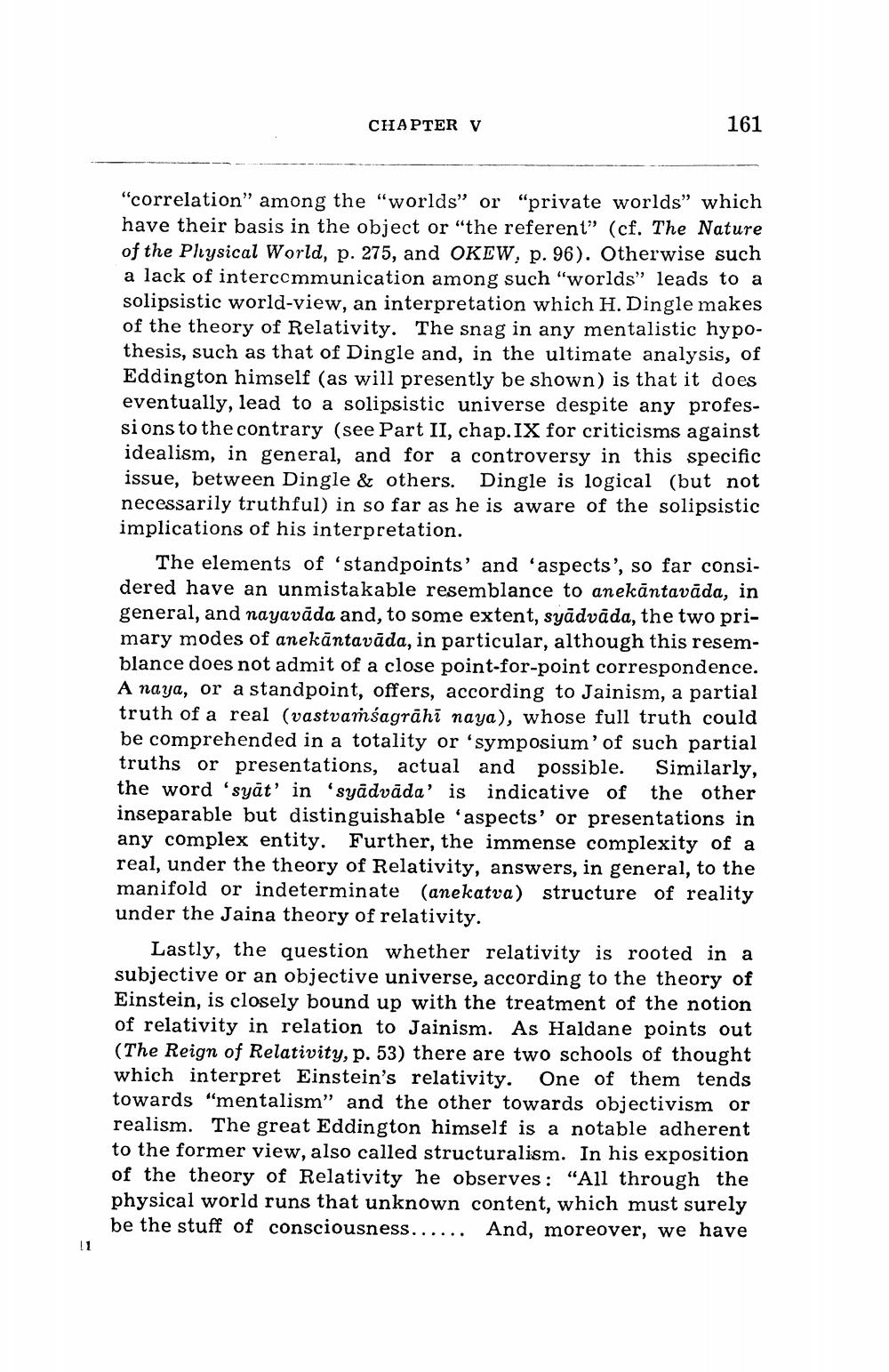________________
CHAPTER V
161
"correlation" among the "worlds" or "private worlds" which have their basis in the object or “the referent” (cf. The Nature of the Physical World, p. 275, and OKEW, p. 96). Otherwise such a lack of intercommunication among such "worlds" leads to a solipsistic world-view, an interpretation which H. Dingle makes of the theory of Relativity. The snag in any mentalistic hypothesis, such as that of Dingle and, in the ultimate analysis, of Eddington himself (as will presently be shown) is that it does eventually, lead to a solipsistic universe despite any professions to the contrary (see Part II, chap. IX for criticisms against idealism, in general, and for a controversy in this specific issue, between Dingle & others. Dingle is logical (but not necessarily truthful) in so far as he is aware of the solipsistic implications of his interpretation.
The elements of 'standpoints' and 'aspects', so far considered have an unmistakable resemblance to anekāntavāda, in general, and nayavāda and, to some extent, syādvāda, the two primary modes of anekāntavāda, in particular, although this resemblance does not admit of a close point-for-point correspondence. A naya, or a standpoint, offers, according to Jainism, a partial truth of a real (vastvamśagrāhī naya), whose full truth could be comprehended in a totality or 'symposium' of such partial truths or presentations, actual and possible. Similarly, the word 'syāt' in 'syadvada' is indicative of the other inseparable but distinguishable 'aspects' or presentations in any complex entity. Further, the immense complexity of a real, under the theory of Relativity, answers, in general, to the manifold or indeterminate (anekatva) structure of reality under the Jaina theory of relativity.
Lastly, the question whether relativity is rooted in a subjective or an objective universe, according to the theory of Einstein, is closely bound up with the treatment of the notion of relativity in relation to Jainism. As Haldane points out (The Reign of Relativity, p. 53) there are two schools of thought which interpret Einstein's relativity. One of them tends towards "mentalism" and the other towards objectivism or realism. The great Eddington himself is a notable adherent to the former view, also called structuralism. In his exposition of the theory of Relativity he observes: "All through the physical world runs that unknown content, which must surely be the stuff of consciousness...... And, moreover, we have




